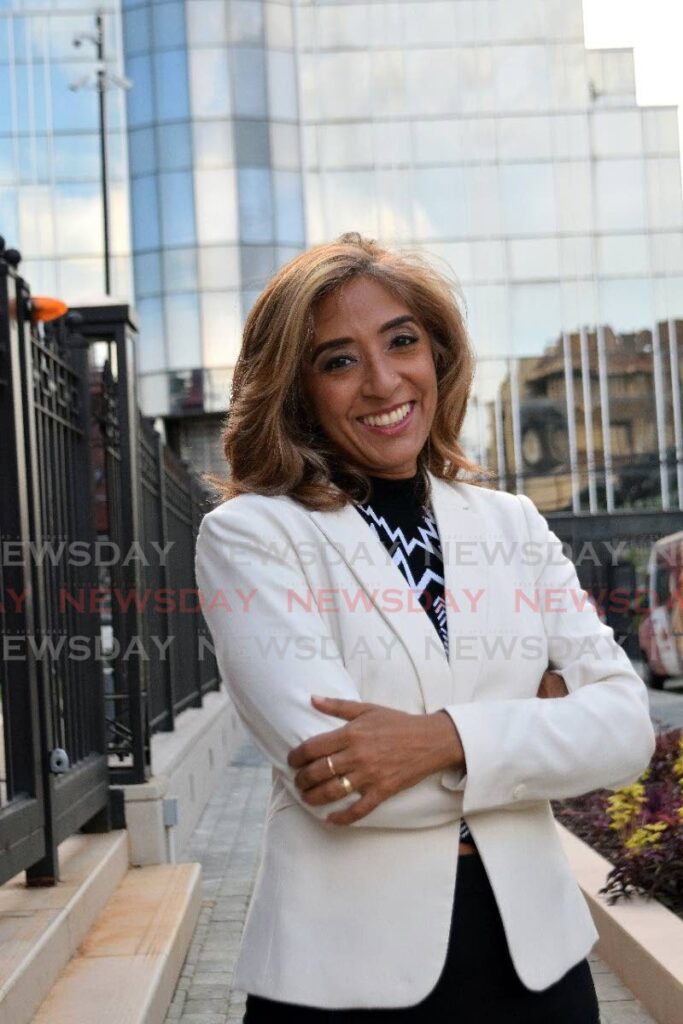Tell adolescents the truth

DR GABRIELLE JAMELA HOSEIN
MYTHS AND falsehoods spread by adults put adolescents at risk. This is especially true in the area of adolescent sexuality.
For example, comprehensive sexuality education (CSE) is often misrepresented as encouraging sexual experimentation and downplaying the risks associated with that behaviour. This is totally untrue and is a falsehood used to rally a misinformed movement against nationwide, equal access to age-appropriate health information for adolescents.
In fact, both CSE and the much broader health and family life education (HFLE) curriculum provide trusted adults and information to help young people make choices that keep them, their peer and family relationships, and their environments healthy and safe.
No one wants adolescents to be sexually active before they are ready to manage responsibilities in relation to self, sex and relationships. Everyone understands the threat that teenage pregnancy poses to girls’ education, livelihood, economic survival and ability to live free of violence.
CSE and HFLE programmes also aim to help minors identify and protect themselves from violence, abuse and bullying, and understand the importance of consent, or the right to decide what happens to your body, and a responsibility to value its safety, health and care.
There are thousands of children currently living in violent families and hundreds who experience sexual abuse each year. This is a group least likely to go to adults to ask questions about sex without fear, shame or danger.
Children under-report their own experience of abuse, such is their silence. Many families don’t talk to children about their bodies, feelings, desires or sex because they are embarrassed, don’t know how or feel it is enough to tell them to study their books.
Where do adolescents then go for information? The internet, where hardcore pornography is only a click away, and where there are many wrong answers to their questions. Or they go to their peers, who are the least experienced and informed. Rousing resistance to HFLE in schools only makes the most vulnerable of these children more silenced and ill-informed and less likely to be empowered to make decisions in their best interest.
There are significant numbers who report unwanted sexual encounters and forced sexual initiation, meaning that the conversations we need to be having with them are not only about abstinence, because sex doesn’t always happen in conditions or in ways that they choose.
Finally, like it or not, in our region, between ten and 30 per cent of adolescents are sexually active by 15 years old. Rural, indigenous and poor girls are most vulnerable, both to predation by older men and to unplanned consequences of sex.
What’s our approach? Abandon them for not obeying abstinence rules by refusing to explain the value of contraception? All that does is condemn them to risky sex; a sign of our own irresponsibility.
This is why, around the region, teenagers consistently ask for access to sexual and reproductive health information in schools and for services that enable them to prevent unwanted sex, sexually transmitted infections and pregnancies, and sexual violence.
We can debate what approach is best.
I agree with telling adolescents to wait until they are more mature or have finished school or can negotiate contraception or can earn their own income before having sex. Definitely, abstinence is best, though it’s not actually the reality for those who are not going to stop being sexually active, so we can’t be so obstinately narrow-minded about the range of information which teens need.
What I find it hard to deal with, however, is misrepresentation of school-based health and family life or comprehensive sexuality curricula. For example, there is not decades of evidence that teaching about contraception leads to earlier sexual activity. And, last week, one opinion piece said: “The CSE approach ignores a needed priority on risk avoidance and, instead, primarily focuses on merely reducing the physical risks of teen sex, without adequately addressing the many other possible consequences of this activity.”
Manners stop me from describing this as a deliberate lie.
Parents, teachers and faith-based folks should know this does not reflect our own HFLE curriculum, which sensitively addresses many consequences and emphasises life skills, self-esteem, personal responsibility, healthy approaches to one’s body (including eating and exercise), and choices that provide the best life chances (including taking parenthood seriously enough to consciously defer pregnancy until adulthood).
In our region, lack of access to sexual and reproductive health and rights curricula and services causes its own harmful results. To protect the health and development of Caribbean children, we need more responsible and truthful adults.
Diary of a mothering worker
Entry 457
motheringworker@gmail.com


Comments
"Tell adolescents the truth"